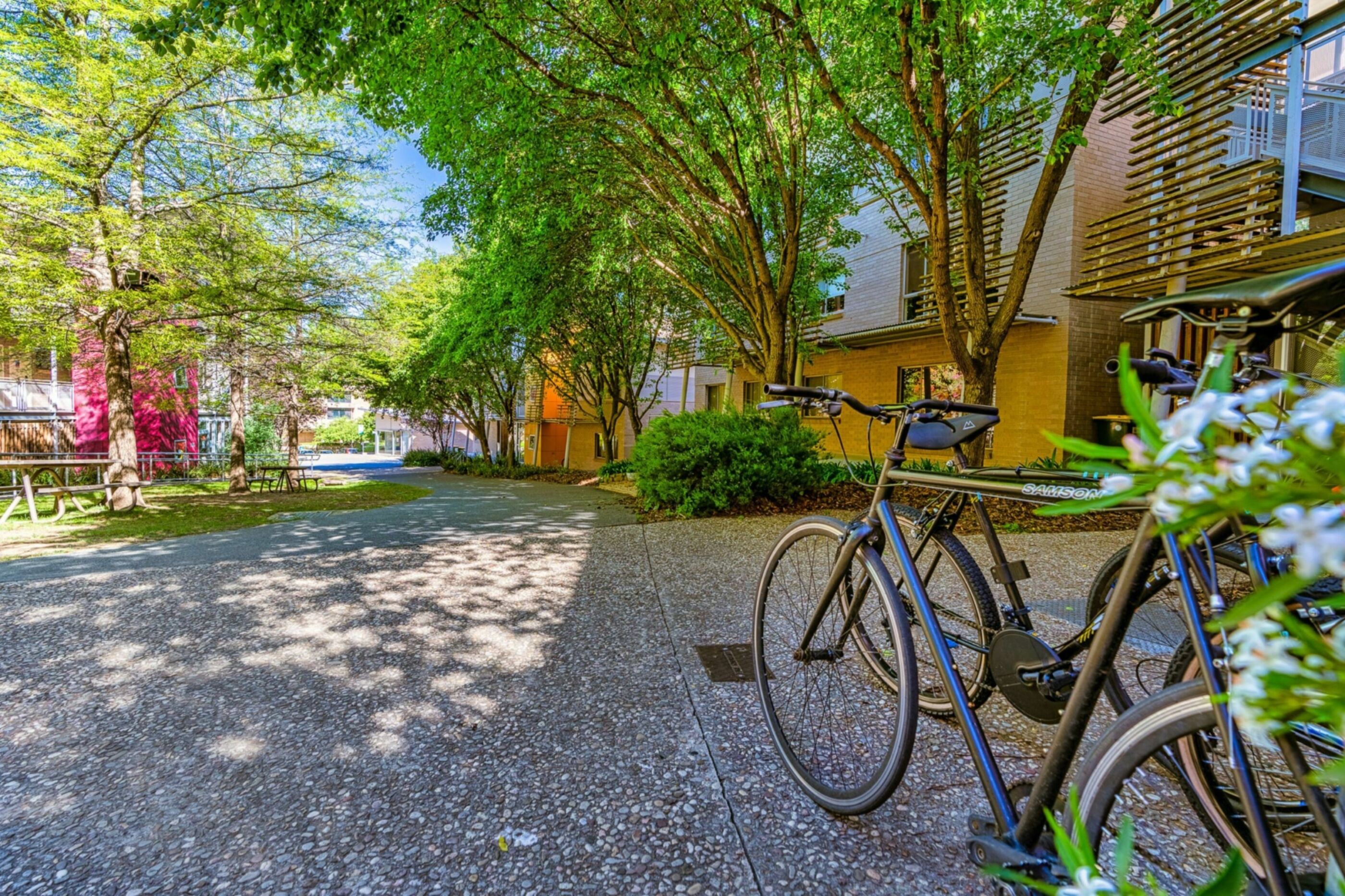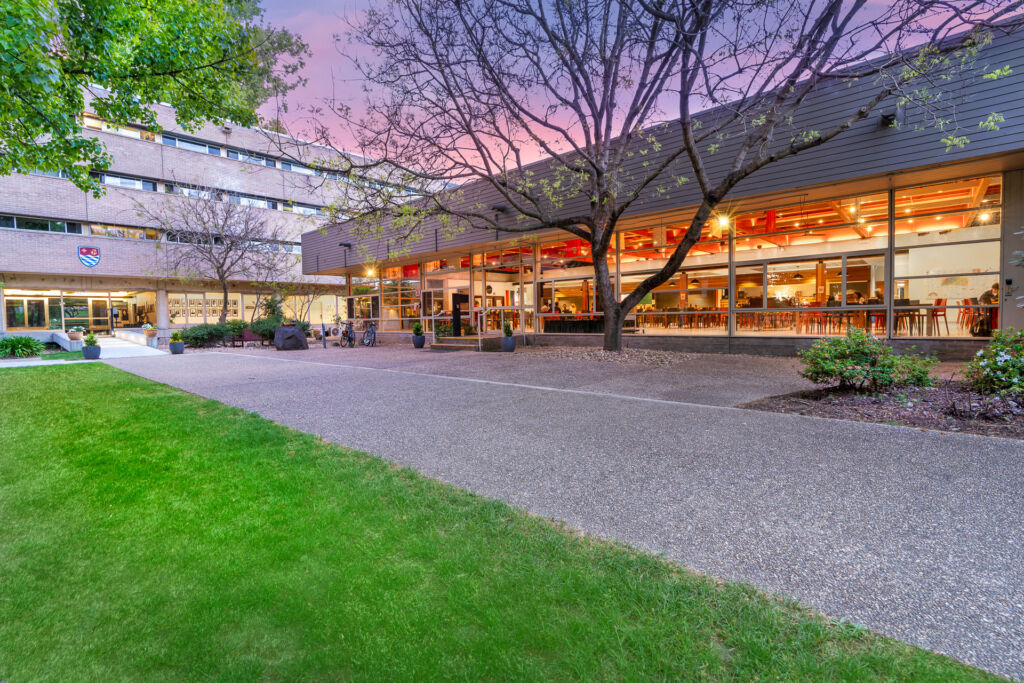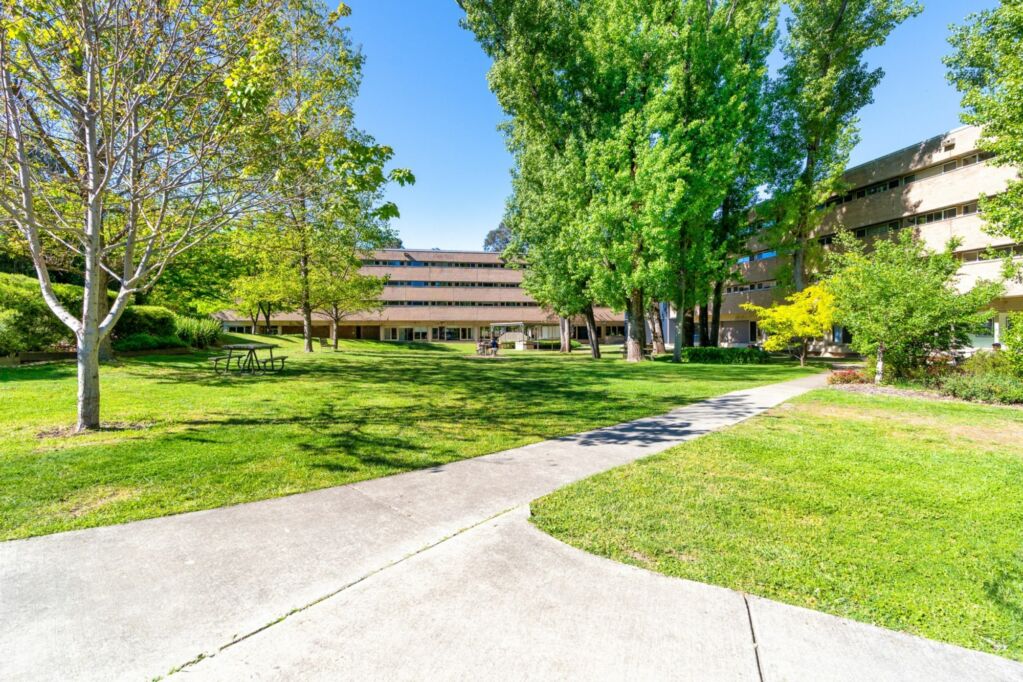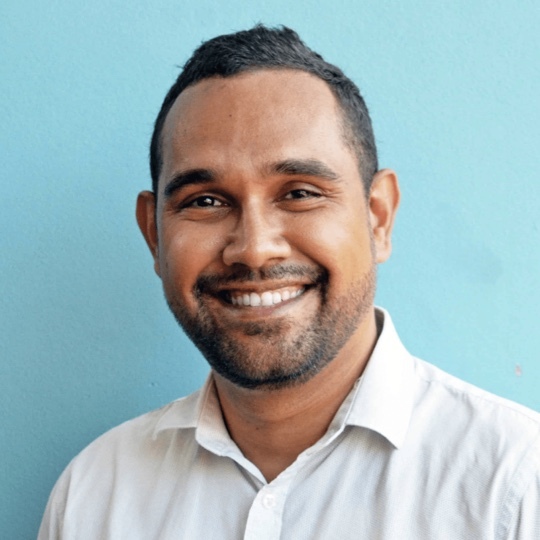
Drawn to study a Masters of Applied Cybernetics at the ANU School of Cybernetics, Matthew Tjapaltjarri Heffernan (2021), a Luritja/Irish technologist from Alice Springs, says Burgmann College’s close connections with the ANU’s Tjabal Indigenous Higher Education Centre led him to live in Burgmann’s Village, allowing him to pursue his dreams of developing technology projects that shape social issues and make everyday science more engaging.
‘I was accepted into the Master of Applied Cybernetics in 2021 and had no idea what I was going to do for my living arrangements in Canberra. I just knew I wanted to live somewhere close enough to campus so I could walk’, says Matthew.
Growing up in Alice Springs, far away from Canberra, Matthew was reviewing on-campus accommodation options on the ANU website and feeling overwhelmed by the options. Thankfully, he knew a dear friend of Burgmann College, Professor Anne Martin, and reached out to her for guidance.
Professor Anne Martin, a proud Yuin woman and Director of the ANU’s Tjabal Indigenous Higher Education Centre, recommended the College’s Postgraduate Village as a welcoming space—and certainly walking-friendly. With the help of the Burgmann team, Professor Martin helped Matthew find a home in Burgmann’s Village, and he began his studies in Applied Cybernetics in 2021.
Cybernetics, as explained on the ANU School of Cybernetics website, ‘looks at the intended and unintended consequences of technology for people and the planet…It aims to ensure humans and the environment are at the forefront of technological innovation and that new systems are safe in a changing world.’
Matthew says the intersection of technology and language/linguistics have always been core interests. His father was a linguist and his mother spoke four languages, and Matthew’s own keen interest and background in technology made pursuing a Master of Applied Cybernetics a clear choice for his career.
‘I decided to study Cybernetics because my boss at the time, Mikaela Jade from Indigital, recommended it to me’, Matthew says. ‘She also introduced me to the then-director of the school, Professor Genevieve Bell, who encouraged me to apply. I've been very fortunate to have strong, deadly women who cheer me on to be the best I can be. And already having a background in technology I thought cybernetics was the sensible next step in evolving my career and academic thinking in this space. It has opened a lot of doors for me.’
Matthew’s decision to pursue Applied Cybernetics allows him to pursue interesting, flexible projects, which aligns well with his ethos about work in general.
‘My rule is: Work with cool people, and then see if the projects align with my larger aspirations and motivations around education, economic self-determination, and technology upskilling’, Matthew says.
‘My work is kind of “all over the shop”, but on LinkedIn I would say “multi-dimensional”. I think, “Why limit your life to doing only the work that's presented to you in the office by someone else's vision”?’
This mindset has opened numerous doors to many cool projects and cool people for Matthew, starting in his graduate days. While studying for his Masters, he was involved in an Australia/New Zealand digital arts program as a mentor.
‘Incredibly, this connected me with a playwright in Melbourne who was working on a play about a robot dog. I had been coincidentally working on a robot dog in my Masters program. So, thanks to the Masters, I'm working on a play about a robot dog with the Melbourne Theatre Company’, he says.
But the scope and scale of Matthew’s interesting projects didn’t end there. In fact, he’s involved in a dizzying, dazzling array of fascinating tech-based projects in addition to holding numerous roles in academic, governmental, startup, and publishing spheres.
‘I loved my time at ANU so much that I was back working here about a year after I had finished my Masters. This year, I've also started a PhD at the School of Cybernetics, looking at Indigenous futurism in science-fiction prototyping.
‘I'm now working as a Business Development Manager for the ANU’s First Nations Portfolio. I'm also an advisor on the ANU School of Engineering’s Bandalang Engineering residency program.
‘I also have a small business working as a technology consultant and software developer. I’m working on cool projects with the Indigemoji team, including updating the original app, creating a new one and planning some others.
‘And lastly, I'm an advisor on the Education Committee at the Australian Institute of Aboriginal and Torres Strait Islander Studies (AIATSIS).’
Somehow, between projects, Matthew finds time to explore poetry as a creative outlet, and his writings can be read through Red Room Poetry and Magabala Books. He’s also a regular contributing writer to IndigenousX, a media, consultancy and training organisation.
When he reflects on his time at Burgmann, Matthew shares his initial hesitancies.
‘Canberra, the ANU, and especially the colleges had a reputation in my mind. I come from a lower socio-economic background, and I had to really confront my own assumptions and prejudices on what it would mean to be living alongside people who may have had different life experiences than me.
‘I made the decision that, despite my assumptions, I was going to treat people with compassion, respect and meet them where they are. It was a small decision, but it meant I got to make some good connections with the staff and friends at the Postgraduate Village.
‘Everyone was so welcoming, and really went out of their way to include me. This was heart-warming for me too, as I was so far from home, and we went into COVID lockdowns soon after I arrived. During the lockdown, it was still cold and got dark quickly, but it was nice to have our regular TimTams and a group of friends that looked out for each other.’
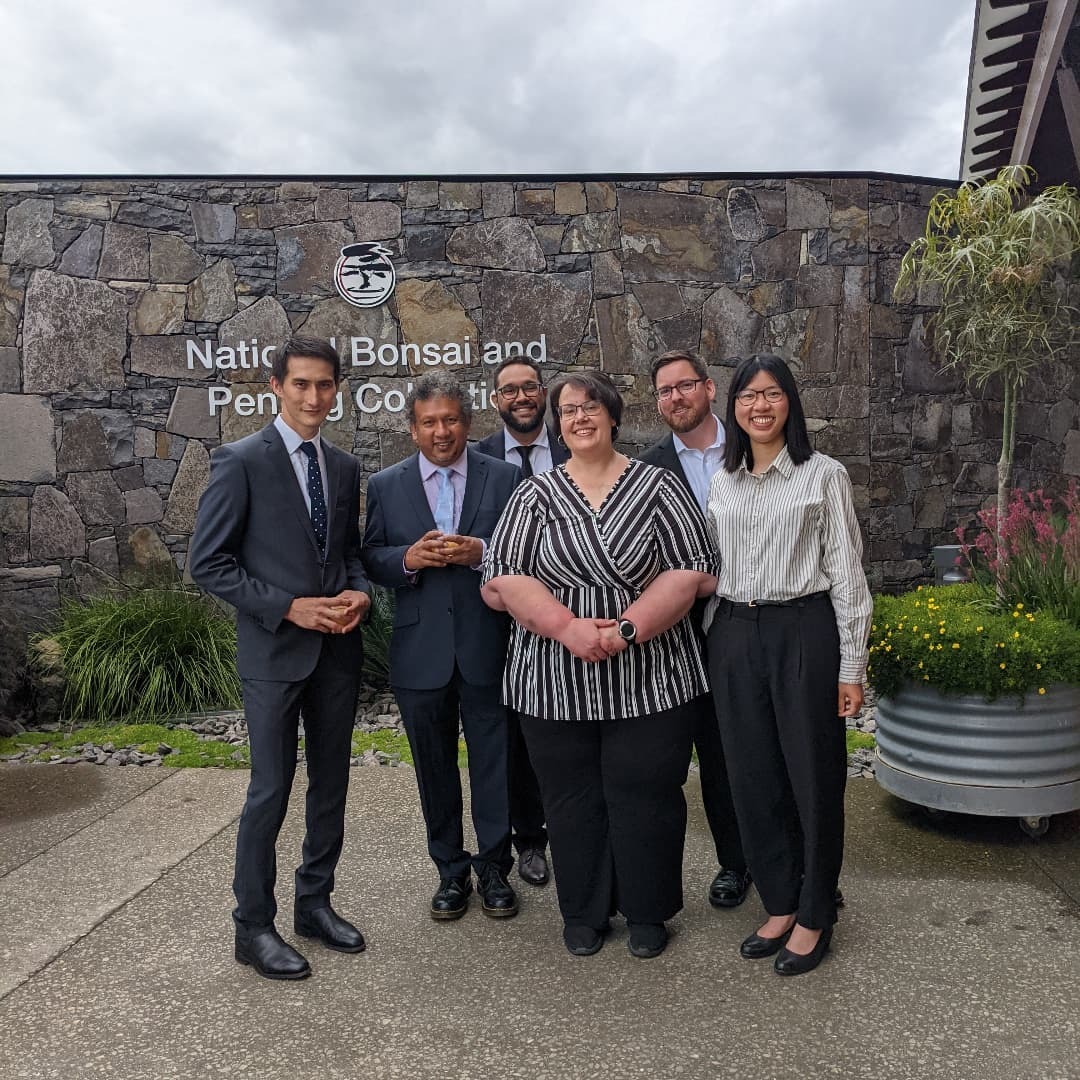
Matthew says that Burgmann’s table rule also had a positive impact on how he approaches new relationships.
‘The rule for the dining hall where we can't sit at our own table, and instead have to join a spare seat, had an impact on me. It seems so insignificant, but I really believe it has changed the way I approach social interactions now; just that ability to sit with strangers and make friends’, Matthew says. ‘It has also made me aware of my presence in groups, and how I can be inclusive of other people who may be new or struggling to make friends.’
Matthew frequently travels back to Canberra for work and keeps in touch with his post-grad and Burgmann friends, though today he calls Naarm (Melbourne) home. ‘I apparently live on the “coolest street in the world”’, he jokes. ‘It's very hustle-bustle and has afforded me a lot of new opportunities.’
These days, in addition to his PhD studies, Matthew continues to find new ways to utilise technology to rethink the ordinary and unveil the hidden extraordinary.
‘Currently, I’m working on an Indigenous weather web app that will translate some common weather terms into Arrernte. Not sure what shape this will take, but I always find it fascinating taking almost mundane and very science-y things, like weather, and breaking them apart to see how we can make it more engaging.’
You can follow news about Matthew’s latest projects and research on Github.
